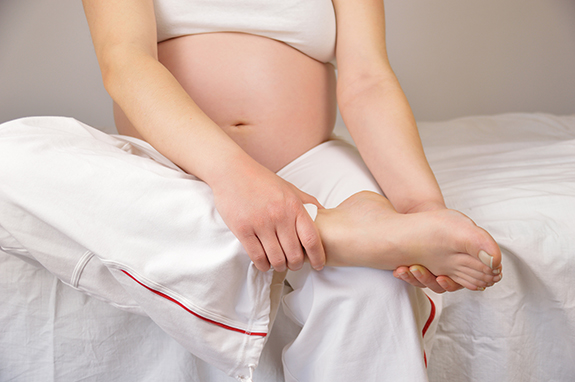
Why does pregnancy trigger swelling in the feet?
Fluid retention is very common during pregnancy due to weight gain and change in hormones.
When should an expecting mother be alarmed by the swelling?
Caution should be taken when one leg begins to swell and the other side stays normal. If the leg becomes red, hot, swollen or painful, this would be a sign of a blood clot, which can be life-threatening. It is important to seek medical attention if this occurs.
What are some things that can be done to reduce the pressure?
As pregnant women sit with their feet off the floor, gravity works against them, resulting in blood pooling in the legs and feet. The best treatment would be to elevate the legs when sitting, wear compression stockings during the day, and to sleep with your legs level with your heart at night.
How do compression socks/tights work?
Compression stockings are special stockings to compress the limb to help improve the movement of blood to prevent edema, blood clots and varicosities. Ask your medical professional for advice on style and pressure strength.
What is the proper way to elevate the limbs?
When swollen, it’s good to elevate limbs, ideally, level to or above one’s heart. This will allow gravity to help drain fluid in the lower extremities, thus alleviating the pain.
Any other tips?
During pregnancy, a hormone called relaxin increases. This hormone helps the body stretch in preparation for childbirth. Relaxin stretches ligaments, including the ligaments in the feet. This can cause arches to collapse and be unstable and can increase joint and foot pain. Supportive footwear with orthotics may help alleviate foot and leg pain. This will help support changes in the foot to distribute pressure evenly. When in doubt, it’s beneficial to see a medical professional for advice.
